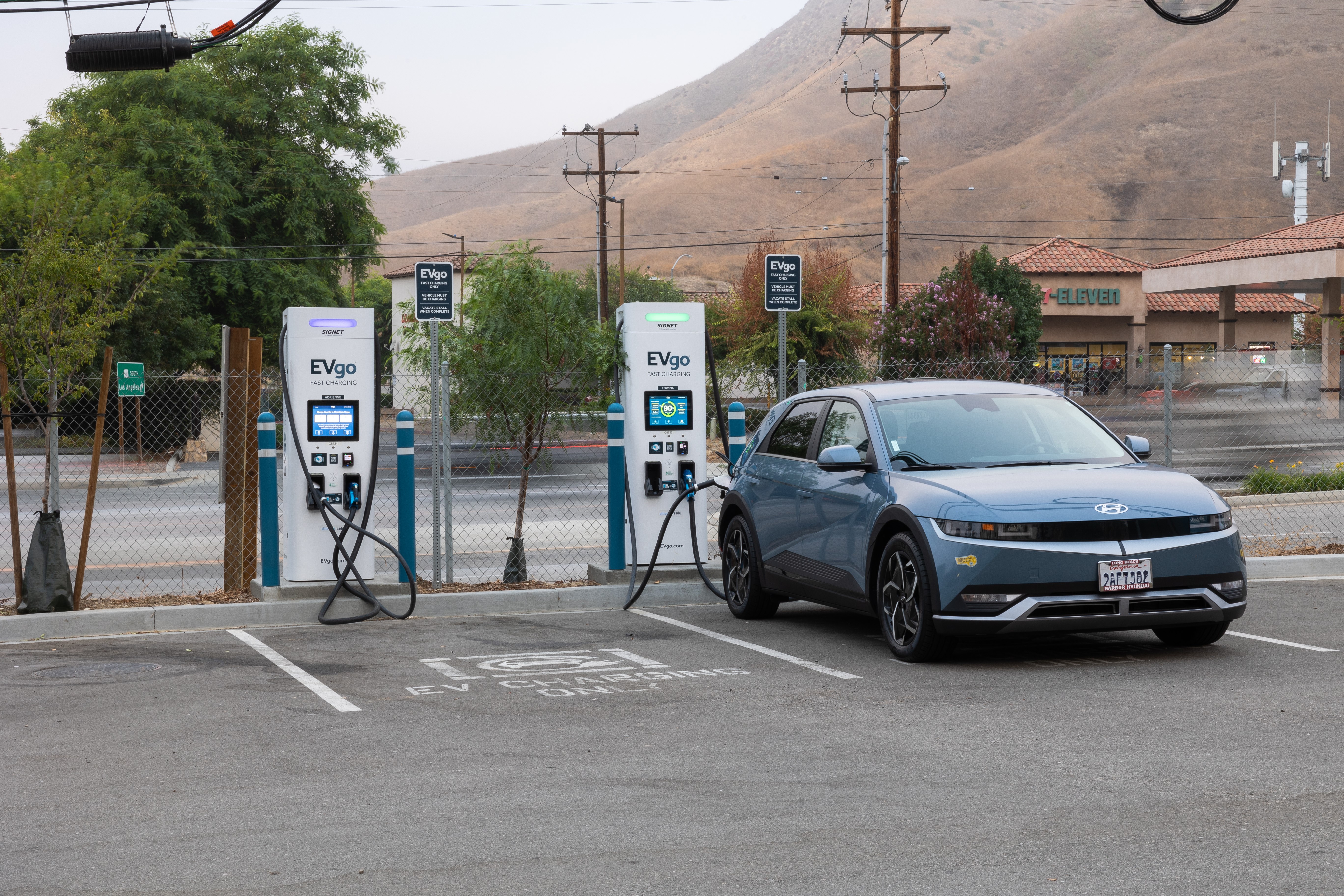Utility Partnerships Unlock Benefits for Critical Infrastructure Deployments
As more drivers choose electric vehicles (EVs), the demand for robust and accessible charging infrastructure continues to surge across the country. Among the most vital, yet often overlooked, players in deploying fast charging stations are electric utilities. In addition to delivering power to our homes and businesses, utilities are also essential in the expansion of public EV charging infrastructure. Beyond supplying electricity to stations, they're making significant investments in what is called 'Make-Ready' infrastructure.
Make-Ready infrastructure refers to the electrical equipment – such as panels, wiring, and transformers – required to prepare a site for the installation of EV chargers. Make-Ready programs help infrastructure providers by reducing the upfront cost of the utility-related construction needed to power charging stations. This support often includes direct rebates for certain expenses, and in some cases, utilities complete the necessary work themselves to prepare a site for charger installation.
Just like the grid, WiFi, and cellular networks, public EV charging is critical infrastructure that powers daily life. EVgo actively collaborates with over 180 utilities across the country, and participates in Make-Ready programs across 20+ states. New programs are being approved all the time; Georgia Power, Duke Energy Florida, DTE Energy, and ComEd are only a few examples of utilities that have recently had programs approved or expanded.
When designed effectively, these programs are powerful incentives for deploying more critical EV charging infrastructure within a utility’s service territory. The immediate benefits are clear: installing more EV chargers increases accessible public charging options, directly expanding fuel choices for consumers. These programs also offer long-term benefits for ratepayers and local businesses.
Benefits for Ratepayers
According to a study by Synapse Energy Economics, EVs have created net revenues for utility companies leading to downward pressure on electricity rates for EV owners and non-EV owners. What does this mean exactly? A portion of your electric bill covers costs related to maintaining the electric grid, which remains relatively stable regardless of increased electricity consumption. When EVs are charging, they provide revenue that often exceeds the utility's cost to generate and deliver that additional power. So, with more EVs, the shared grid costs are distributed among a larger pool, leading to lower rates for everyone, assuming all other factors remain equal.
Benefits for Local Businesses and the Economy
By reducing the cost to install EV charging stations, properties and businesses can offer EV charging as an amenity to attract and retain customers looking for convenient locations to charge their EVs. An MIT study found that public charging stations increase customer traffic and consumer spending at nearby businesses, spurring economic growth.
Charger deployment not only draws customers, it also stimulates local economies by creating jobs across various sectors, including site planning and development, construction, engineering, maintenance, and electrician services. In fact, an ICCT analysis estimates that charger deployment could lead to 160,000 new full-time equivalent jobs in the U.S. by 2032, with even greater potential for job growth through domestic production.
Make-Ready Tariffs as an Emerging Policy Tool
Make-Ready tariffs, like those seen in California’s AB 841, are effective alternatives to traditional Make-Ready programs because they enable utilities to design, install, and maintain all electrical infrastructure on their side of the meter for EV charging customers. Instead of approving and administering a specific Make-Ready program, this tariff treats costs just like other essential distribution infrastructure expenses in a general rate case. A key benefit of these tariffs is that they are a more predictable tool to encourage infrastructure investments. Importantly, this approach can benefit states without existing Make-Ready programs, as well as states with existing programs to complement and support other installation costs. New York and Virginia are among the states that have explored the implementation of Make-Ready tariffs via legislation. 
With these benefits in mind, we encourage electric utilities to implement Make-Ready programs, guided by our best practices. These recommendations, developed and refined by EVgo’s subject matter experts, are designed to ensure successful implementation.
